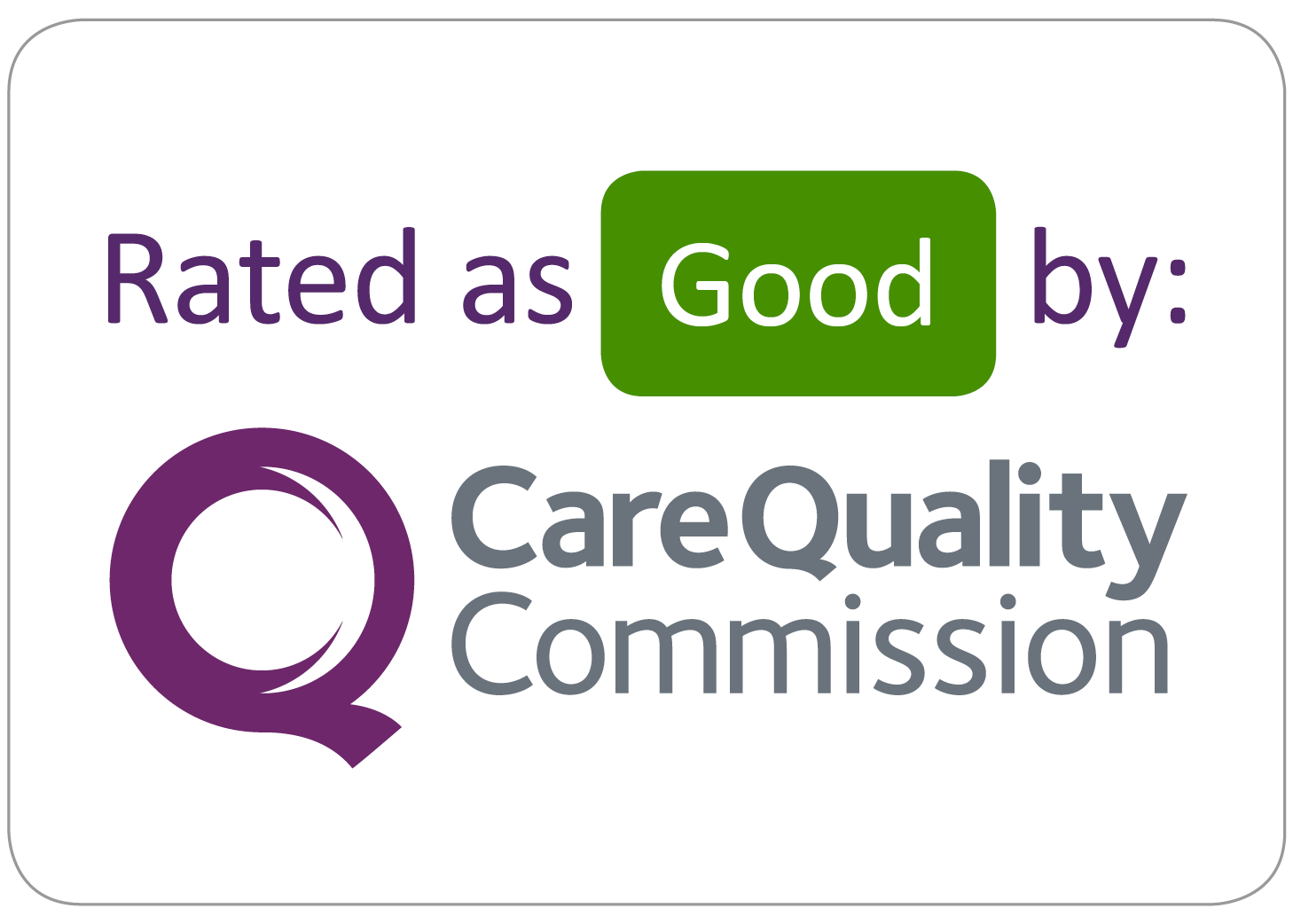Inclusivity at CHFT
We aim to develop an environment where people understand and respect each other’s differences, a place where you can be what you want to be, a place where colleagues work hand-in-hand with one another to deliver one culture of care.
Our vision is that our teams will reflect our diverse communities and we want our colleagues to feel part of what we deliver, because people who feel valued can be themselves and bring their best self to work.
#onecultureofcare
Equality Delivery System22
NHS organisations within the West Yorkshire Health and Care Partnership are committed to equality, diversity and inclusion. You can read more on this website: https://www.westyorkshire.icb.nhs.uk/about-west-yorkshire-integrated-care-board/equality-and-diversity
The Equality Delivery System (EDS) https://www.england.nhs.uk/about/equality/equality-hub/patient-equalities-programme/equality-frameworks-and-information-standards/eds/eds2/ is a toolkit designed by the Department of Health to help NHS organisations to improve the services they provide for their local communities, consider health inequalities in their local area and provide better working environments that are free of discrimination, as set out in the Equality Act 2010. This work must include involvement and partnership working with local partners and local communities. The EDS helps NHS organisations meet their Public Sector Equality Duty (read more: https://www.gov.uk/government/publications/public-sector-equality-duty)
Since its launch in 2011 the NHS Equality Delivery System 2 has been used across the partnership within the NHS to:
- Assess our performance in addressing our Equality Diversity and Inclusion (EDI) priorities.
- Provide opportunities for stakeholders to analyse our performance data and input into that assessment.
- Assist with identifying our EDI priorities for the future.
- Provide opportunities to work in partnership to deliver and assess those priorities consistently.
In 2022 NHS England launched a new Equality Delivery System 22 framework following a review of the EDS2. EDS 2022 is a tool designed for both NHS commissioners and NHS providers. You can see information through this link: https://www.england.nhs.uk/about/equality/equality-hub/patient-equalities-programme/equality-frameworks-and-information-standards/eds/
We remain committed to using the EDS frameworks to support consistent assessment and involvement of all our communities in our EDI work.
Within the West Yorkshire Health and Care Partnership it has been agreed that organisations will use the EDS2 to assess their performance for 2022 and will transition to EDS22 in 2023.
Participating organisations have agreed that for EDS22 partners will work together to:
- Share and compare data and information.
- Engage and involve stakeholders in EDS22 processes together.
- Peer review our assessment processes and outcomes to promote consistency of approach and score.
- Share and co-create the materials needed to implement the EDS22 to ensure effective use of our resources.
You can find CHFT's EDS 2023/24 reports here:
Workforce Race Equality Standard (WRES)
Workforce Race Equality Standard (WRES) Action Plan
WRES Action Plan 2024. This opens a PowerPoint document, we have also added plain text below.
********************************************************************************************************
Trust Composition
14% (0.4%) of the non-clinical and 28.5% (+1.8%) of the clinical workforce are BAME. Overall, 24.9% of the Trust representation is BAME in 2023-24 an increase of 1.6% from 2022-23.
Action
- Continue to support Trust Widening Participation initiatives to support our local engagement with underrepresented groups.
Shortlisting
White and BAME applicants have an almost equal opportunity to be appointed from shortlisting in 2023-24 (white applicants 1.02 times likely), this is nearly identical to the equal likelihood in 2022-23.
Action
- Undertake analysis where certain areas have a healthy % of shortlisting BAME candidates but this has not transferred to an appointment, and host recruitment and selection training for those areas.
- Review reruiting manager training. to include a section regarding international nurses and enhance focus on bais in decision making.
Career Progression
50.8% (+0.8%) of BAME colleagues feel the Trust acts fairly towards career progression compared to 63.6% (+1.8%) of white. This is a 12.8% gap, and a worsening position from 2022-23.
Action
- The Trust will work with the REN network to offer career progression support, mentorship opportunities, interview skills and application form completion workshops for BAME and international colleagues.
- Enhance visibility of career pathways for BAME band 5 and above.
Development
88.4% of white colleagues access training (other than mandatory and role specific) compared to 76.8% of BAME colleagues. White colleagues are 1.15 times more likely to access non-mandatory training.
Action
- The trust will work with the REN network to promote the development opportunities available and encourage colleagues to participate in the programmes. The OD team will seek out opportunities for colleagues to participate in the Mary Seacole programme.
Disciplinaries
BAME colleagues are 1.54 times more likely to enter formal disciplinary process than white colleagues, an improving position from 2022-23. 23 colleagues in 2023-24 began a formal disciplinary process, 15 white, 8 BAME
Action
- The Trust will undertake a review of disciplinary cases (to review bias and consider any training for managers) from 2023-24 and action recommendations from review.
Reported Discrimination
13.5% (-2.0%) of BAME colleagues experienced discrimination at work from their manager or colleagues compared to 5.6% of white staff, an improving position from 2022-23. BAME colleagues are 2.4 times as likely to experience discrimination.
Action
The Trust will undertake a review of discrimination cases (to review bias and consider any training requirements for managers) reported during 2023-24 and action recommendations from review.
Board Composition
BAME coleagues comprise 7.7% of the Voting Board. This is not representative of the Trust composition or local population demographics.
Action
- A board Diversity Action Plan has been developed.
Bullying and Harassment (Public)
28.2% (-5.5%) BAME colleagues experienced abusive behavior at work from patients/public compared to 26.0% (-0.9%) white colleagues. This is an improvement from 2022-23 and a closing of the gap from 6.8% to 2.2%.
Action
- The Trust has launched a violence and aggression policy. The Trust will be embedding this further to support closing the gap.
Bullying and Harassment (Staff)
27.3% (+0.6%) BAME colleagues compared to 18.8% (0.9%) white colleagues experienced abusive behavior at work from other staff in 2023-24. This is an improving position for white colleagues and a worsening position for BAME.
Action
- The Trust will work with REN to develop an anti-racism campaign plus CHFT will undertake a review of reports of bullying and harassment cases from 2023-24 and action recommendations from the review.
Workforce Disability Equality Standard (WDES)
Workforce Disability Equality Standard (WDES) Action Plan
WDES Action Plan 2024. This opens a PowerPoint document, we have also added plain text below.
**************************************************************************************
Trust Composition
8.1% (+1.4%) of the non-clinical, and 5.1% (0.4%) of the clinical workforce have declared a disability. Overall, 5.9% of colleagues within the Trust have a disability, an increase of 0.7% from 2022-23.
Action
- Engage support from the disability network to develop a campaign to improve colleague declaration rates.
Apoointment Shortlisting
Disabled applicants have a slightly higher chance of appointment from shortlisting. In 2023-24 the likelihood of a successful appointment for a non-disabled applicant has worsened from 0.91 times as likely to 0.89 times, moving.
Action
- Undertake analysis where certain areas have a poor % of shortlisting disabled candidates and host recruitment & selection training for those areas with training content supported by the disability network.
Career Progression
56.9% (+4.2%) of disabled colleagues feel the Trust acts fairly towards career progression compared to 62.4% (+0.4%) of non-disabled staff. This is a 5.5% gap, and an improving position from the 9.3% gap in 2022-23.
Action
- The Trust aims to work with Disability Network to offer career progression sessions including interview skills and application form completion guidance.
- Enhanced support to host an effective appraisal - colleague guidance (supported by members of the disability network).
Valued
33.7% (+0.8%) of disabled staff feel the Trust values their work, while 48.1% (+3.7%) of non-disabled staff feel the same. This is an improvement in both groups, however the gap has worsened from 11.5% to 14.4% in 2024.
Action
- Plan to upskill managers, enhancing awareness around engagement of disabled colleagues and people with a long-term health condition.
- Management Development, resonable adjustments, understanding neurodiversity, effective wellbeing conversations, health passport, giving colleagues the right tools to do a good job. Content supported by the disability network.
Pressured to work
During 2023-24 both disabled and non-disabled colleagues reported an improvement in this metric with a decrease in feeling pressured to come to work even while unwell, dropping from 31.5% to 31% for disabled colleagues, and 21.5% to 19% for non-disabled. The gap however worsened from 10% to 12%.
Action
The Trust will upskill managers on effective wellbeing conversations, reasonable adjustments and compassionate leadership. Content supported by disability network members.
Engaged
Results of the latest 2023 staff survey show no-disabled colleagues report an engagement score of 7.1 an improvement of 0.2 from the previous year. However, disabled colleagues saw no change from a score of 6.5, and a worsening gap of 0.6.
Action
- The Trust will reach out to a wider audience for disability network to include 'people with a long-term health condition' and colleagues who have a neurodiverse condition and ask them to share experiences and ask for advice on the areas of focus to enhance colleague experience.
Board Composition
20% of Trust Executive Board members have declared a disability. Disabled colleagues comprise 15.4% of the Voting Board. Both are sufficiently represented when compared to the Trust composition.
Action
- A board Diversity Action Plan has been developed.
Bullying and Harassment (Public)
32% (-0.6%) of disabled colleagues experienced abusive behaviour at work from patients/public compared to 24.3% (-2.2%) of non-disabled colleagues. This is an improvement compared to the previous year; however, the gap has worsened, widening to 7.7% from 6.1%.
Action
- The Trust has launched a violence and aggression policy. The Trust will be embedding this further to support closing the gap
Bullying and Harassment (Staff)
- 25.3% of disabled colleagues compared to 14% white colleagues experienced abusive behaviour at work from other staff. Widening the gap from 10.1% to 11.3%, an improving position for non-disabled colleagues, but a worsening position for disabled colleagues.
Action
- The Trust will work with the disability network to develop a anti discrimination campaign plus CHFT will undertake a review (to review bias and consider any training requirements for managers) of reports of bullying and harassment cases from 2023-24 and action recommendations from the review.
CHFT Gender Pay Gap reporting
Please visit our publications page to see our Gender Pay Gap information.
Public Sector Equality Duty Report

The Trust pays “due regard” to equality, as required by the Act. Our latest Public Sector Equality Duty (PSED) Report

















